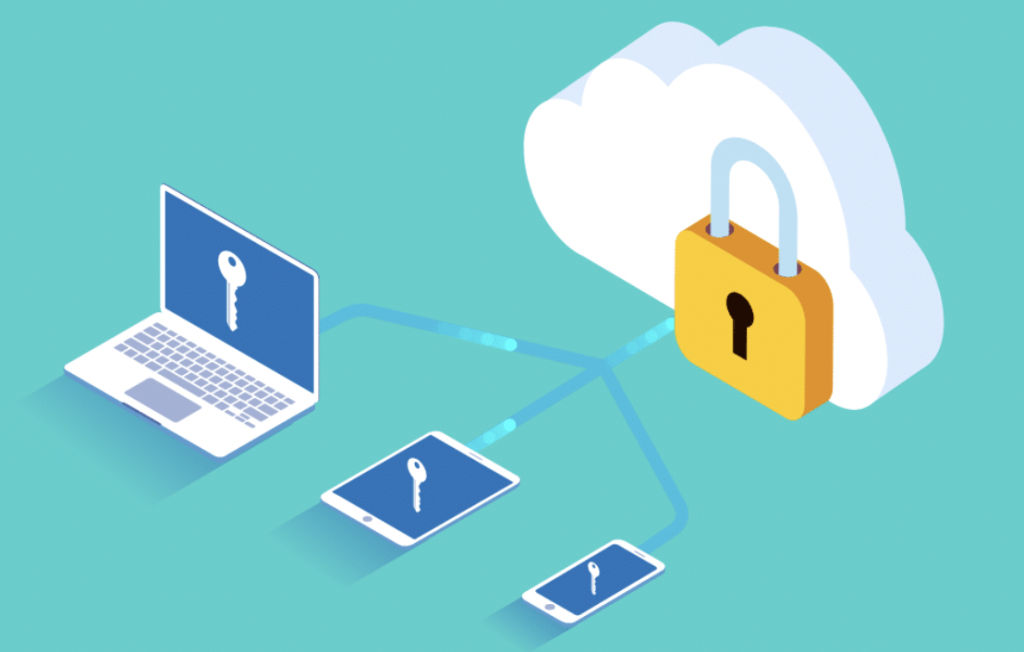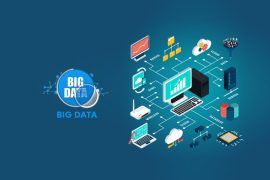In the era of rapid technological advancement and digital transformation, the paramount concern that looms over individuals and businesses alike is data privacy. As we traverse the digital age, our lives are increasingly intertwined with technology, from our smartphones to the vast repositories of data stored in the cloud. With this increased reliance on digital platforms comes the critical need to safeguard sensitive information from potential threats.
Software as a Service (SaaS) has emerged as a pivotal player in addressing the evolving challenges of data privacy in the modern business landscape. This article delves into the multifaceted realm of data protection and explores the pivotal role that SaaS solutions play in ensuring the confidentiality, integrity, and availability of data. In the following sections, we will examine the intricacies of data protection.
Table of Contents
What is Data Protection?

Data protection refers to the set of measures and practices implemented to safeguard sensitive information from unauthorized access, alteration, or disclosure. It encompasses a wide range of strategies and technologies aimed at ensuring the privacy and security of data throughout its lifecycle.
Why is Data Protection Important in the Digital Age?
In the digital age, data has become one of the most valuable assets for individuals and organizations alike. The exponential growth of data collection, storage, and sharing has made it increasingly vulnerable to cyber threats and privacy breaches. With the proliferation of online services and the interconnectedness of our digital lives, the importance of data protection cannot be overstated. As data continues to drive innovation and business operations, effective data protection measures are essential to navigate the complexities of the digital landscape securely.
Challenges in Data Protection
In our data-driven world, data protection is met with a myriad of challenges. The rapid evolution of technology and the sheer volume of data generated daily present significant hurdles for individuals and organizations. Among these challenges are data breaches, which continue to escalate in sophistication and scale, posing serious threats to data security and privacy. Compliance with ever-evolving data protection regulations like GDPR and CCPA can be complex and resource-intensive. Balancing the convenience of data accessibility with the imperative of data security is an ongoing challenge, making it imperative to adopt adaptable data protection strategies in this digital age.
SaaS Solutions for Data Security
Software as a Service (SaaS) offers a compelling array of solutions for bolstering data security in the digital age. These solutions encompass a broad spectrum of tools and services designed to safeguard sensitive information effectively.
Advantages of Using SaaS for Data Protection
The adoption of SaaS for data protection offers numerous advantages. Firstly, it simplifies the implementation of robust security measures, as SaaS providers typically handle infrastructure and security updates. This offloads a significant burden from organizations, allowing them to focus on their core activities.
SaaS solutions also facilitate scalability, enabling businesses to adapt their data protection strategies as they grow. Additionally, SaaS often provides cost-effective options, reducing the need for substantial upfront investments in security infrastructure.
Key SaaS Tools for Data Protection
Software as a Service (SaaS) offers a rich ecosystem of tools specifically designed to bolster data protection and privacy in the digital age. Here are some key SaaS tools that organizations can leverage to enhance their data security:
Data Encryption and Secure Transmission: Data encryption involves converting data into a ciphertext format that is unreadable without the appropriate decryption key. SaaS platforms often employ encryption to secure data both in transit and at rest. In the sector of secure transmission, it ensures that data is protected as it travels between devices and servers, safeguarding it from interception or unauthorized access during transit. This fundamental security measure is vital in maintaining data privacy in the digital age.
Identity and Access Management (IAM): IAM solutions within SaaS platforms allow organizations to control who has access to their data and under what conditions. They provide authentication and authorization mechanisms to ensure that only authorized users can access sensitive information.
Data Loss Prevention (DLP): SaaS DLP tools help organizations identify and prevent the unauthorized sharing or leakage of sensitive data. They can automatically classify data, monitor data movement, and enforce policies to safeguard against data loss.
Multi-Factor Authentication (MFA): Many SaaS applications offer MFA options, adding an extra layer of security by requiring users to provide multiple forms of verification before gaining access.
Security Information and Event Management (SIEM): SIEM tools in the SaaS space collect and analyze security data from various sources, helping organizations detect and respond to security incidents and threats in real time.
Backup and Disaster Recovery: SaaS providers often offer backup and recovery solutions to ensure data resilience in the face of unexpected events like data corruption or ransomware attacks.
Threat Detection and Response: Threat detection and response are crucial components of modern data protection strategies. SaaS platforms often incorporate advanced threat detection capabilities to identify and mitigate security incidents. These tools continuously monitor system activity, network traffic, and user behavior, looking for anomalies or suspicious patterns. When a potential threat is detected, automated responses or alerts are triggered, allowing organizations to take swift action to minimize damage and protect their data assets. This proactive approach is essential for staying ahead of evolving cyber threats in the digital age.
These SaaS tools empower organizations to proactively protect their data, adapt to evolving threats, and comply with data protection regulations, making them invaluable in today’s data-centric digital landscape.
Compliance and Regulations
Data protection regulations and compliance standards play a pivotal role in shaping how organizations handle and safeguard data in the digital age. SaaS providers and businesses must navigate a complex landscape of regulations that vary by region and industry. Key regulations include the General Data Protection Regulation (GDPR), the California Consumer Privacy Act (CCPA), the Health Insurance Portability and Accountability Act (HIPAA), and many more. Ensuring compliance with these laws is not only a legal obligation but also critical for maintaining trust with customers and avoiding potentially severe penalties for data breaches and privacy violations. Staying up-to-date with evolving regulations and implementing SaaS tools to aid compliance efforts is essential for responsible data management in today’s interconnected world.
Case Studies
In this section, we’ll explore real-world examples of organizations that have benefited from using Software as a Service (SaaS) solutions for data protection. These cases illustrate how SaaS tools can enhance data security and privacy in diverse industries:
- Acme Healthcare Solutions: Acme Healthcare, a leading provider of medical services, implemented a SaaS-based identity and access management (IAM) solution to secure patient records. This ensured that only authorized personnel could access sensitive healthcare data, complying with HIPAA.
- Tech Innovators Inc.: A technology startup, Tech Innovators Inc., used SaaS backup and disaster recovery services to protect its critical codebase and customer data. When a server outage occurred, the SaaS solution allowed them to swiftly recover data and minimize downtime, safeguarding their reputation and customer trust.
- Global Financial Services: A multinational financial institution turned to SaaS-based threat detection and response tools to combat cybersecurity threats. With real-time monitoring and automated threat mitigation, they prevented security breaches and maintained the confidentiality of customer financial data.
- Retail Giant XYZ: Retail Giant XYZ adopted a SaaS data loss prevention (DLP) solution to prevent the inadvertent sharing of sensitive customer information. The DLP tool monitored outgoing communications and prevented accidental data leaks, helping the company maintain regulatory compliance and protect its brand.
- Educational Institution ABC: Educational Institution ABC implemented SaaS encryption services for data at rest and in transit. This ensured that confidential educational records remained protected, meeting both educational privacy regulations and the institution’s ethical obligations.
These case studies underscore how SaaS solutions have been instrumental in addressing data protection challenges across various sectors, demonstrating their versatility and effectiveness in safeguarding sensitive information.
Future Trends in Data Protection
The landscape of data protection is continually evolving to address emerging threats and technologies. Key future trends include the integration of artificial intelligence and machine learning for advanced threat detection, the adoption of Zero Trust security models that assume no trust by default, the rise of privacy-enhancing technologies like confidential computing, and the increasing importance of international data transfer frameworks. These trends reflect the ongoing commitment to securing data in an ever-changing digital environment and are essential for organizations aiming to stay ahead of evolving cybersecurity challenges.
Conclusion
In an age where data is the lifeblood of our digital existence, data protection and privacy have never been more critical. This article has explored the multifaceted realm of data protection in the digital age, with a particular focus on the pivotal role of Software as a Service (SaaS) solutions. We’ve seen how SaaS tools provide robust solutions to safeguard sensitive information. Encryption, identity and access management, threat detection, and more are at the forefront of SaaS offerings, empowering organizations to protect their data comprehensively.
In conclusion, as our digital lives become increasingly intertwined with technology, embracing SaaS solutions for data protection is not merely an option but a necessity. It is the key to preserving trust, complying with regulations, and ensuring that sensitive data remains secure in the ever-evolving landscape of the digital age.
Read More
The Top10 AI-Powered SaaS Platforms Transforming Business Operations





